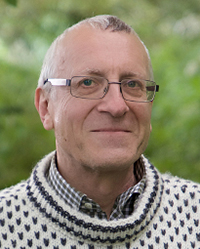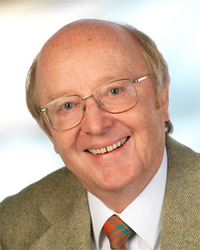40周年記念講演
神戸大会では,第40回を記念して特別講演を企画しました。皆さま奮ってご参加ください。
なお,これらの記念講演は全て英語です。
40周年記念講演1
11月23日(金)(大会1日目)13:00-14:00
Conference Hall
Prof. Dr. Tristram D. WYATT
(Department of Zoology, University of Oxford, UK)
Tristram Wyatt is a Senior Research Fellow at the Department of Zoology, University of Oxford and an emeritus fellow of Kellogg College, Oxford. He did his PhD in animal behaviour at the University of Cambridge. He’s interested in how animals of all kinds use pheromones to communicate by smell. His Cambridge University Press book on pheromones and animal behavior won the Royal Society of Biology’s prize for the Best Postgraduate Textbook in 2014. His TED talk on human pheromones has been viewed over a million times. His book "Animal behaviour: A Very Short Introduction" was published by Oxford University Press in 2017.
Pheromones at 60: celebrating powerful model systems in physiology, biochemistry and neuroscience
As we approach the 60th anniversary of the chemical identification of the first pheromone, bombykol, pheromones have been found in species across the whole animal kingdom, from insects to newts, mice and goats, in every habitat, and with a great variety of functions. Pheromones, the invisible chemical signals within species, have also offered model systems studied by scientists worldwide, including many distinguished JSCPB members. In this wide-ranging talk, I will touch on the remarkable discoveries made about the evolution, mechanisms, and roles of pheromones in a diversity of model and non-model animal systems.
40周年記念講演2
11月24日(土)(大会2日目)18:00-19:00
Conference Hall
Prof. Dr. Friedrich G. BARTH
(Department of Neurobiology, University of Vienna, Austria)
Friedrich G. Barth is professor emeritus at the University of Vienna where he founded and headed the Department for Neurobiology. Born and raised in Germany, he studied biology and human physiology at the universities of Munich and California at Los Angeles (UCLA). Having followed Martin Lindauer on his chair at the JW Goethe University in Frankfurt in 1974 he moved to Vienna University in 1987. His main research interests are sensory systems, neuroethology, and related biomechanical questions, emphasizing an integrative and interdisciplinary approach and promoting collaborations between biology and engineering. Friedrich Barth has been serving as the editor in chief of the "Journal of Comparative Physiology A (neuroethology, sensory, neural and behavioral physiology)" for some twenty years. He was a guest professor in several countries, among them the United States (UC Berkeley), Japan (Yokohama City University), India (SV University Tirupati) and China (NUAA Nanjing). He is a member of several scientific academies such as the Academia Europaea, the German National Academy of Sciences / Leopoldina, and the Austrian Academy of Sciences.
Making sense of senses: the clever "design" of spider mechanoreceptors
Spider sensors responding to different forms of mechanical energy are chosen to illustrate the power of evolutionary constraints to fine-tune the functional “design” of animal sensors to the specific roles they play in particular behaviors.
The application of computational biomechanics and the cooperation between biologists and engineers demonstrate that there are remarkable “technical” tricks to be found by which spider tactile sensors, airflow sensors, and strain sensors are adjusted to their biologically relevant stimulus patterns. The application of such “tricks” to technical solutions of measuring problems similar to those of the spiders is both realistic and promising.